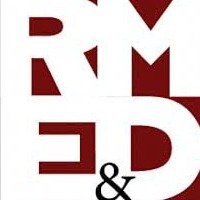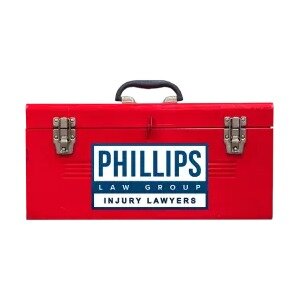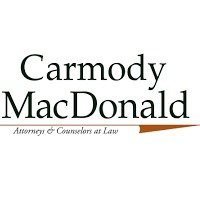Best Banking & Finance Lawyers in United States
Share your needs with us, get contacted by law firms.
Free. Takes 2 min.
Or refine your search by selecting a city:
List of the best lawyers in United States
United States Banking & Finance Legal Articles
Browse our 1 legal article about Banking & Finance in United States written by expert lawyers.
- United States Student Loan Repayment 2026: Post-SAVE Options
- By 2026, most federal borrowers will be in long-term repayment with interest fully accruing again, and several "temporary" relief rules are set to expire. If legal or political attacks weaken SAVE, the original Income-Based Repayment (IBR) plan is likely the most durable, legally grounded income-driven repayment (IDR) option still available.... Read more →
About Banking & Finance Law in United States
Banking and finance law in the United States encompasses a wide range of regulations and statutes governing financial institutions and their transactions. It involves the legal aspects that oversee the actions of banks, lending institutions, and other financial entities. This area of law is crucial for maintaining the integrity and stability of the nation’s financial system, ensuring transparency and protecting consumers from fraudulent activities. Key components include compliance with federal laws such as the Dodd-Frank Act, the Bank Secrecy Act, and various state laws, which regulate lending practices, securities, and financial reporting.
Why You May Need a Lawyer
There are several situations where you might require the expertise of a lawyer specializing in banking and finance:
- Loan Agreements and Disputes: Whether you're seeking to secure a personal or business loan, a lawyer can help negotiate terms and resolve disputes.
- Securities Regulations: Navigating compliance with SEC regulations can be complex, requiring legal advice especially for Initial Public Offerings (IPOs).
- Consumer Protection: If you face issues like predatory lending or need to dispute credit reporting errors, a lawyer can protect your rights.
- Bankruptcy Filings: A lawyer can guide you through personal or business bankruptcy proceedings and help restructure financial obligations.
- Regulatory Compliance: Financial institutions often need legal help to ensure compliance with federal and state regulations.
Local Laws Overview
The United States has a complex system where both federal and state laws regulate the banking and financial sectors. Key aspects include:
- Federal Laws: These include the Banking Act of 1933, the Dodd-Frank Wall Street Reform and Consumer Protection Act, and the Sarbanes-Oxley Act, which focus on financial transparency, consumer protection, and corporate governance.
- State Laws: Each state has its own set of regulations that may include usury laws, which dictate interest rates, and laws that regulate who can act as a lender.
- Regulatory Bodies: The Federal Reserve, the Office of the Comptroller of the Currency, and the Consumer Financial Protection Bureau all play significant roles in overseeing financial practices.
Frequently Asked Questions
1. What is the role of a banking and finance lawyer?
A banking and finance lawyer specializes in the laws and regulations that govern financial institutions and transactions. They provide legal advice, assist in drafting and negotiating financial agreements, and ensure compliance with regulatory requirements.
2. When should I contact a banking and finance lawyer?
Consider consulting a lawyer when dealing with complex loan agreements, facing disputes with banks, dealing with regulatory compliance issues, or contemplating bankruptcy.
3. How can I ensure my rights as a consumer are protected?
Understand your rights under laws such as the Fair Credit Reporting Act and the Truth in Lending Act. Consult legal experts if you believe your rights have been violated.
4. What are the penalties for non-compliance with banking regulations?
Penalties can include fines, suspension of operations, and even criminal charges, depending on the severity of the non-compliance.
5. How does bankruptcy affect my finances?
Bankruptcy can provide relief from debts but also has significant long-term effects on your credit score and ability to borrow money. Legal advice can help you navigate this complex process.
6. Are there laws regulating online banking in the USA?
Yes, online banking is regulated by laws such as the Electronic Funds Transfer Act, which ensures secure and safe electronic transactions.
7. Can I settle bank disputes without going to court?
Many banking disputes can be settled through arbitration or mediation, often outlined in the initial agreement with the bank.
8. What is usury, and how is it regulated?
Usury refers to charging excessively high-interest rates on loans. It is regulated by state laws, and rates that exceed legal limits can be challenged legally.
9. What should I do if I suspect fraudulent activity on my account?
Immediately report the activity to your bank, monitor your accounts closely, and consider consulting legal services for advice on further actions.
10. Is there a statute of limitations on financial disputes?
The statute of limitations varies by state and the type of financial dispute, but generally ranges from two to six years. Consult a lawyer for precise information regarding your case.
Additional Resources
- Consumer Financial Protection Bureau (CFPB): Offers guidance and resources for consumers facing financial issues.
- The Federal Reserve’s website: Provides insights into banking regulations and financial stability.
- American Bar Association (ABA): A reliable source for finding qualified banking and finance lawyers.
Next Steps
If you need legal assistance in banking and finance, consider the following steps:
- Identify Your Needs: Clearly define the legal issues you are facing to find the appropriate legal counsel.
- Research Lawyers: Look for lawyers with experience in banking and finance law. The American Bar Association and state bar associations can help.
- Schedule Consultations: Meet with potential lawyers to discuss your case and see if they are the right fit.
- Discuss Fees: Understand the fee structure and ensure it aligns with your budget before hiring a lawyer.
Lawzana helps you find the best lawyers and law firms in United States through a curated and pre-screened list of qualified legal professionals. Our platform offers rankings and detailed profiles of attorneys and law firms, allowing you to compare based on practice areas, including Banking & Finance, experience, and client feedback.
Each profile includes a description of the firm's areas of practice, client reviews, team members and partners, year of establishment, spoken languages, office locations, contact information, social media presence, and any published articles or resources. Most firms on our platform speak English and are experienced in both local and international legal matters.
Get a quote from top-rated law firms in United States — quickly, securely, and without unnecessary hassle.
Disclaimer:
The information provided on this page is for general informational purposes only and does not constitute legal advice. While we strive to ensure the accuracy and relevance of the content, legal information may change over time, and interpretations of the law can vary. You should always consult with a qualified legal professional for advice specific to your situation.
We disclaim all liability for actions taken or not taken based on the content of this page. If you believe any information is incorrect or outdated, please contact us, and we will review and update it where appropriate.
Browse banking & finance law firms by service in United States
United States Attorneys in related practice areas.
Browse banking & finance law firms by state in United States
Refine your search by selecting a state.
















